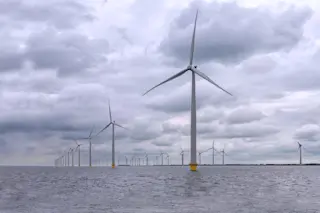There's an intriguing, somewhat dispiriting profile by David Owen in the current New Yorker ($ubscription) of an idealistic, enviro-minded inventor who wants to do good in the world, but is having a hard time overcoming the "limits of innovation." The subject of the piece is Saul Griffith, who as recently as 2004 was a Ph.D. student at MIT. By all accounts he's brilliant--heck, that same year he won a $500,000 MacArthur "genius grant" for an eyeglass invention that the judges thought would bring cheap, corrective lens to poor communities around the world. It didn't work out that way, and eventually the gifted inventor turned his attention to energy--how to make it both clean and affordable. Again, things haven't worked out as he hoped, and now Griffith is thinking that the solution to climate change lies not with technology but human behavior. He's also become pretty cynical. Here's some friendly fire ...
Eco-Inventor Angst
Explore the fascinating limits of innovation through inventor Saul Griffith's journey in seeking clean and affordable energy.
More on Discover
Stay Curious
SubscribeTo The Magazine
Save up to 40% off the cover price when you subscribe to Discover magazine.
Subscribe












